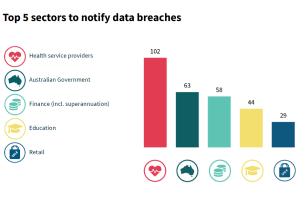Data Breach Surge: A Wake-Up Call for Privacy

The Office of the Australian Information Commissioner (OAIC) has reported a jump in reported data breaches in the first half of 2024 - at 527 the highest number in three and a half years.
Australian Privacy Commissioner Carly Kind said the high number of data breaches is evidence of the significant threats to Australians’ privacy.
"Almost every day, my office is notified of data breaches where Australians are at likely risk of serious harm," she stated.
“This harm can range from an increase in scams and the risk of identity theft to emotional distress and even physical harm.”
“Privacy and security measures are not keeping up with the threats facing Australians’ personal information and addressing this must be a priority.”
Malicious and criminal attacks accounted for over two-thirds of all breaches. The health sector and the Australian Government were the top targets, accounting for 19% and 12% of all breaches respectively.
The MediSecure data breach, which affected approximately 12.9 million Australians, stands out as a stark reminder of the massive scale these incidents can reach. This breach alone impacted nearly half of the country's population, making it the largest in the scheme's history.
The Australian Government has introduced the Privacy and Other Legislation Amendment Bill 2024. This legislation aims to bolster the OAIC's enforcement capabilities and clarify existing security obligations for organizations. However, Commissioner Kind emphasizes that further reform is still needed to truly safeguard Australians' personal information.
“The Notifiable Data Breaches scheme is now mature, and we are moving into a new era in which our expectations of entities are higher,” Commissioner Kind said.
“Our recent enforcement action, including against Medibank and Australian Clinical Labs, should send a strong message that keeping personal information secure and meeting the requirements of the scheme when a data breach occurs must be priorities for organisations.”
The full OAIC report is available HERE.
